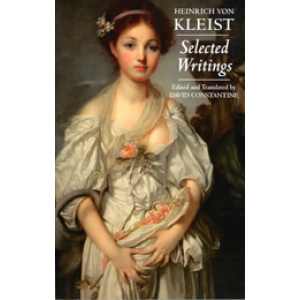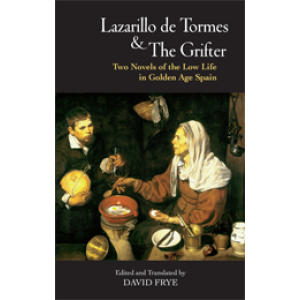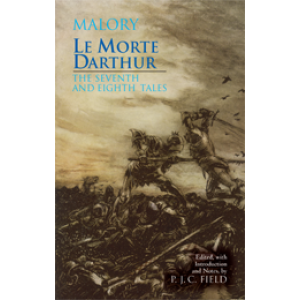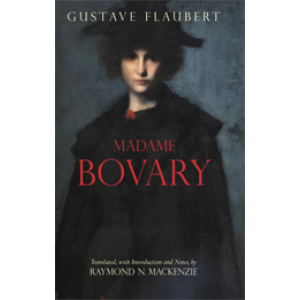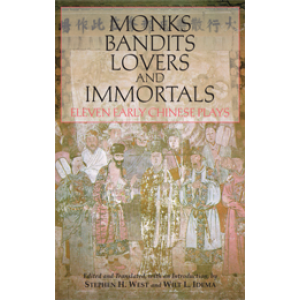Literature
- Kalila and Dimna
"This masterful translation of one of the most popular books of world literature makes available to an English readership the animal tales known collectively as Kalila and Dimna. Named after the two jackals of Pancatantra fame, this collection of stories is based on a 12th-century Persian translation of an 8th-century original Arabic rendition by Ibn al-Muqaffa‘. Set within a frame narrative of counsels given to the Raja of India by his Brahmin minister, the engaging tales about cats and mice, storks and crabs, tortoises and geese, owls and crows, and princes and ascetics, function as cautionary illustrations of human predicaments and all-too-human vices and virtues. Far from being a collection of children’s fables, Kalila and Dimna is a Machiavellian mirror for princes containing advice on how to preserve oneself from one’s enemies and get ahead at court and in life. The dialogues that constitute the bulk of the narrative harbor a dramatic immediacy, exerting a powerful effect even on a modern-day reader." —Maria Subtelny, University of Toronto
Learn More - King Henry the Sixth: Parts I, II, and III
George Lyman Kittredge's insightful editions of Shakespeare have endured in part because of his eclecticism, his diversity of interests, and his wide-ranging accomplishments—all of which are reflected in the valuable notes in each volume. The plays in the New Kittredge Shakespeare series retain the original Kittredge notes and introductions, changed or augmented only when some modernization seems necessary. These new editions also include introductory essays by contemporary editors, notes on the plays as they have been performed on stage and film, and additional student materials.
Learn More - King John & Henry VIII
"This is a terrific edition that really brings King John and Henry VIII to life. Consistently inviting student participation, the edition makes the plays wonderfully accessible, through explanations of the language, descriptions of context, topic guides, plot outlines, illustrations, and genealogies. A particular strength is the emphasis on performance. Thanks to the insightful histories provided, King John and Henry VIII are richly illuminated as stage and screen creations, allowing for genuinely imaginative engagement with these most fascinating Shakespearean dramas."
Learn More
—Ramona Wray, Reader in English at Queen's University, Belfast - King Lear
"By adding comments on recorded performances to Kittredge's notes . . . [which] were fun and helpful to my early study of Shakespeare . . . Kenneth Sprague Rothwell gives students and researchers the means to explore how performance can elucidate 'the script' of King Lear."
Learn More
—Harry Keyishian, Fairleigh Dickinson University - King Oidipous
This is an English translation of Sophocles' famous tragedy of Oedipus and the fate he so much tries to avoid. Focus Classical Library provides close translations with notes and essays to provide access to understanding Greek culture.
Learn More - King Richard II
"An extraordinary artistic achievement, Richard II remains one of Shakespeare's most satisfyingly ambiguous plays and expertly-penned exercises in shifting audience sympathies. Pendleton's even-handed introduction and judicious supplements to Kittredge's annotations lay out the play's issues in a way that make its delightful poignancy even more available to readers. Especially useful are Pendleton’s extensive in-text performance notes, which recount how film versions deal with the challenges and possibilities the play presents."
Learn More
—James Wells, Muskingum University - King Richard the Third
"In this splendid edition, Jacquelyn Kilpatrick gives us a comprehensive primer on Shakespeare's performance craft and an ideal text for teaching Richard III, particularly to students new to Shakespeare. Her introductory materials make a century of scholarship and filmmaking both accessible to the newcomer and illuminating for the experienced student or performer. Her keen understanding of the original performance circumstances of Shakespeare's plays and insightful accounts of salient stage and film productions work together to open up the rich array of possibilities and choices in performance, both then and now."
Learn More
—Catherine S. Burriss, California State University, Channel Islands - Kleist: Selected Writings
“If ever a literary work was a sleep of reason, bruised by menacing shapes, it is Kleist’s. He was one of the first of a line of German writers whose inwardness is so intense it seems to dissolve the weak bonds of his society. . . . Even as order and paternalism struggled to assert themselves in the private and public life of the nineteenth century, Kleist was introducing scenes of mob violence, cannibalism, and less than benevolent fathers. . . . David Constantine, a distinguished poet and Germanist, and a translator of Hölderlin, has taken pains to give us a literary Kleist, ‘a writer we cannot do without.’ . . . This book, containing all the stories and three key plays, provides a compelling view of a misfit genius who, in one of his last notes, remarked ‘the world is a strange set-up.’”
Learn More
—Iain Bamforth, The Times Literary Supplement - L'enfant noir
The Focus Student Editions are designed for French language courses in literature and culture. Prepared with non-native French speakers in mind, these editions include an introduction (in French), the complete work, and linguistic and cultural notes in French, a current bibliography and study questions. A masterwork of modern francophone African literature, L’enfant noir has the artistry of a novel and the authenticity of an autobiography. This prizewinning 1954 tale describes the narrator’s journey from childhood in Kouroussa, in northwestern Guinea, to France, and the conflict of sacred traditions with the ways of the modern world.
Learn More - L'École des femmes
Molière's 1662 comedy L'École des femmes is considered by critics to be among his finest work. The story of a man who is so obsessed by feminine unfaithfulness that he plans to marry his young, naïve ward, whom he has groomed to be the perfect wife, is a classic example of Moliere's bold comedic style. This edition features the French text of Molière's play with vocabulary and notes suitable for students studying for the AP exam in French Literature.
Learn More - La casa de Bernarda Alba
Federico García Lorca's 1945 drama is set in a small Spanish village, where the five daughters of a tyrannical mother struggle against her strict control. The play explores themes of repression, passion, and conformity, and the effects of love upon men upon women. This edition is designed to help students approach the original Spanish text through an introductory essay, vocabulary and cultural notes, and study questions. All material is in Spanish, and complete in one volume, appropriate as an introductory text for Spanish language courses in literature and culture.
Learn More - Languages of Art
“Like Dewey, he has revolted against the empiricist dogma and the Kantian dualisms which have compartmentalized philosophical thought. . . . Unlike Dewey, he has provided detailed incisive argumentation, and has shown just where the dogmas and dualisms break down.”
Learn More
—Richard Rorty, The Yale Review - Lazarillo de Tormes and The Grifter (El Buscon)
"An elegant, precise, and accessible modern-English rendering of the two best examples of the early modern picaresque genre: the paradigmatic Lazarillo de Tormes and Quevedo's mordant El Buscón. Frye's translations are triumphant, capturing the cadence of popular early modern speech while remaining faithful to the original texts; his notes illuminate the diverse contexts in which the texts were written. Frye gives careful attention throughout to the historical background that propelled these two parallel but different monuments of Golden Age Spanish literature."
Learn More
—Teofilo Ruiz, UCLA - Le Morte D'Arthur
"I've just finished reading Joseph Glaser's Le Morte D'Arthur. I'm very pleased with it: the introduction is helpful without becoming an extended essay, the suggested reading seems solid and diverse, and the index is VERY useful, even for someone who has read Malory before. At last, a reader can keep all the knights and ladies straight! A fine entry point to a grand text, and when I next have an occasion to teach a course involving chivalry, I'll plan to use this very affordable edition."
Learn More
—Craig Caldwell, Department of History, Appalachian State University - Le Morte Darthur: The Seventh & Eighth Tales
"P. J. C. Field, the world's preeminent Malory specialist, has wisely chosen to offer here Malory's seventh and eighth tales, recounting the decline and end of Camelot. The authoritative text is accompanied by indispensable notes and preceded by a remarkably thorough and learned—but never obscure—Introduction sufficient to prepare students and other readers to profit fully from the texts. This book is ideal for those coming to Malory for the first time and a distinct pleasure for those who already know him well."
Learn More
—Norris J. Lacy, E. E. Sparks Professor of French and Medieval Studies, Penn State University - Lorca: Four Key Plays
In addition to a substantial introduction to the life and works of Federico García Lorca—avant-garde poet, playwright, and soul of Spain's "Generation of '27"—this collection features vibrant new English translations of four of his plays. The legacy of a dramatic, religious, and social iconoclast whose death made him a martyr of the left in Civil-War Spain and who today is embraced as a gay icon shines through in Michael Kidd's stage-worthy renderings of Yerma, Blood Wedding, The House of Bernarda Alba, and a more experimental play, The Audience, a kaleidoscopic exploration of sexual identity and theater.
"Kidd's translations are excellent. The biographical and critical material included as front matter in the volume are aimed at the English-speaking layman reader, and are appropriate for that reader, but interesting to the specialist too, as Kidd's thoughts on the texts include more reflection than is common in the scholarship on (for instance) questions of producibility, taking the plays as scripts intended to be performed, rather than only as texts to be read from a page. Kidd's book would be an ideal introduction to Lorca's theater for an English-speaking audience." —David W. Bird, Saint Mary's College of California, in Letras Hispanas
Learn More - Love's Labour's Lost
"This student-friendly edition of a difficult play includes a clear, helpful introduction and notes elucidating the complicated imagery and wordplay. Notes and illustrations refer the reader to various staging options enabling him or her to imagine Love’s Labour’s Lost in performance."
Learn More
—Katharine E. Maus, James Branch Cabell Professor of English Literature, University of Virginia - Lucian: Three Menippean Fantasies
A handful of fragments is all that remains of the writings of Menippus, the third-century BCE provocateur of the Greek Cynic movement. The Western literary tradition knows him through Lucian, the Greek satirist who lived and worked four hundred years later. Included in this book are Joel Relihan’s lively English translations of Lucian’s three reanimations of Menippus—fantastic narratives and comic dialogues set in heaven and hell: Menippus; or, The Consultation of the Corpses, Icaromenippus; or, A Man above the Clouds, and The Colloquies of the Corpses (Dialogues of the Dead).
“Professor Relihan’s translations of Lucian’s Menippus works are the best I know of in English. The notes, Introduction, and Afterword are models of concision and clarity. This volume will be enormously useful to anyone interested in Lucian, Menippus, or ‘Menippean satire’.” —R. Bracht Branham, Emory University
Learn More - Lysistrata (Henderson Edition)
Henderson's English translation of Lysistrata, the most popular of Aristophanes' plays, appeals to the modern reader because of its lively and imaginative plot, strong and memorable heroine, good jokes, and appeal for peace and tolerance between nations and between the sexes. Jeffery Henderson, noted Greek scholar, puts the work in historical and cultural context in his comprehensive introduction. Suggestions for further reading, notes, and map are also included.
Learn More - Lysistrata (Ruden Edition)
"Presents a readable, clear translation with the assistance students will need to understand this play and the society that produced it. . . . A worthy addition to Hackett's growing series of translations of classical literature in accessible editions."
Learn More
—Anne Mahoney, New England Classical Journal - Macbeth
"Seventy years after their publication, George Lyman Kittredge's editions of Shakespeare remain exceptional for the combination of learning, acuity, wit, and clarity he brings to his notes on the plays. Annalisa Castaldo makes Kittredge's Macbeth even more useful for modern readers by skillfully streamlining Kittredge's annotations and adding helpful analyses of the play and its film productions. There is no better edition of Shakespeare for students, beginning or advanced."
Learn More
—Dr. James Wells - Machiavelli: Selected Political Writings
“The Introduction is vibrant, comprehensive and persuasive. Manages to address the needs of undergraduates while constituting an original contribution to contemporary scholarship. Bravo!” —Alan Houston, University of California, San Diego
“Wootton’s Introduction is an excellent piece of work that offers both scholars and students a valuable guide to Machiavelli’s texts.” —Maurizio Viroli, Princeton University
Learn More - Madame Bovary
"After his beautiful translation of Baudelaire's Paris Spleen, Raymond N. MacKenzie now offers us a fresh, superb version of Madame Bovary by Flaubert. Impeccably transparent, this new translation captures the original's careful, precise language and admirably conveys the small-mindedness of nineteenth-century provincial French towns. MacKenzie's tour de force transports the reader to Yonville and compels him to look at Emma with Flaubert's calm, disenchanted eyes." —Thomas Pavel, University of Chicago
Learn More - Man a Machine and Man a Plant
The first modern translation of the complete texts of La Mettrie's pioneering L'Homme machine and L'Homme plante, first published in 1747 and 1748, respectively, this volume also includes translations of the advertisement and dedication to L'Homme machine.
Learn More - Measure for Measure
"This most problematic of Shakespeare's plays, a comedy filled with dark corners, has been beautifully presented by Laury Magnus and the late Bernice Kliman. Scholars will admire their editorial skill while students will benefit greatly from their ample notes, useful timeline of the play's plot, and cogent performance history. As the editors explain, the fiercely interlocked themes of the play—sex, money, justice, and religion—make this play a measure not only of Shakespeare's time but of our own."
Learn More
—Anthony DiMatteo, New York Institute of Technology - Medea (Podlecki Edition)
English translation. Includes essays on the play's mythical background and the work of Euripides, an introduction to Greek drama and the dramatic tradition, plot summaries and suggestions for further reading. For both students and the general reader.
Learn More - Medea (Svarlien Edition)
"This is the Medea we have been waiting for. It offers clarity without banality, eloquence without pretension, meter without doggerel, accuracy without clumsiness. No English Medea can ever be Euripides', but this is as close as anyone has come so far, and a good deal closer than I thought anyone would ever come. Arnson-Svarlien has shown herself exceedingly skillful in making Euripides sound Euripidean." —David M. Schaps, Bryn Mawr Classical Review
"Fluid, lively, and accurate!" —Amy Vail, Department of Classics, Baylor University
Learn More - Medea, Hippolytus, Heracles, Bacchae
Drawn from four titles in the Focus Classical Library, this anthology includes four outstanding translations of plays by Euripides as well as a general introduction, extensive footnotes, and two interpretive essays. Included are Anthony J. Podecki’s translation of Medea, Michael R. Halleran's translation of Hippolytus and Heracles and Stephen Esposito’s translation of Bacchae.
Learn More - Medieval Drama
This reprint (with updated 'Suggestions for Further Reading') of the Houghton Mifflin edition makes David Bevington's classic anthology of medieval drama available again at an affordable price.
Learn More - Memorable Deeds and Sayings
“The publication of Henry John Walker’s translation of Memorable Deeds and Sayings ensures a wider readership for Valerius’ great compendium of Greco-Roman lore. Of the many merits of Walker’s translation, I would cite especially its readability. Walker has produced a version of Valerius Maximus that reflects the original’s wide sweep, but in Walker’s hands Valerius tells a seamless story in multiple parts. This translation will be easily used by students in the classroom and by scholars. It is a substantial accomplishment: a superior new translation that renders a monument of Latin literature accessible in every way to multiple audiences.”
Learn More
—Joseph Pucci, Brown University - Mengzi
"The Mengzi is one of the richest philosophical texts in classical Chinese philosophy, and Van Norden's translation is among the few that do it justice. His translation is further distinguished by its accessibility and is unique in including substantial selections from later commentaries. As such it is both an essential scholarly resource and a great introduction to Confucian thought." —Justin Tiwald, San Francisco State University
Audiobook: An audiobook of Mengzi: With Selections from Traditional Commentaries, published by Ukemi Audiobooks, is available exclusively from Audible. Learn more about the Audible audiobook on Amazon.com.
Learn More - Metamorphoses (Ambrose Edition)
This complete verse translation of Ovid's classical work is illustrated with extensive notes, an index, and glossary. To help the reader contend with Ovid's frequent leaps both ahead and back in time, the principle episodes are listed at the beginning of each book and the subsections and digressions marked with indentations. Some footnotes also refer to mythological material Ovid has derived from Greek epic or drama or, occasionally, from later sources. Specific authors referred to in these notes are briefly identified in the index and glossary.
Learn More - Metamorphoses (Lombardo Edition)
"Stanley Lombardo successfully matches Ovid’s human drama, imaginative brio, and irresistible momentum; and Ralph Johnson’s superb Introduction to Ovid's 'narratological paradise' is a bonus to this new and vigorous translation that should not be missed. Together, Introduction and text bring out the delightful unpredictability of Ovid’s 'history of the world' down to his times."
—Elaine Fantham, Giger Professor of Latin, Emerita, Princeton University"Lombardo’s translation is the most readable I’ve seen. . . . Its language is modern, accessible, and unpretentious. . . . I can imagine reading all the way through this version with students. I also admire the catalog of transformations . . . and, as usual, an Introduction by Ralph Johnson is worth the price of the book." —Margaret Musgrove, University of Central Oklahoma
Learn More - Middle English Poetry in Modern Verse
This rich and lively anthology offers a broad selection of Middle English poetry from about 1200 to 1500 C.E., including more than 150 secular and religious lyrics and nine complete or extracted longer works, all translated into Modern English verse that closely resembles the original forms. Five complete satires and narratives illustrate important conventions of the period: Athelston, a historical romance; The Cock and the Fox, a beast fable by Robert Henryson; Sir Orfeo, a Breton lai; Saint Erkenwald, an alliterative saint's life; and The Land of Cockayne, a fantasy. The book concludes with substantial excerpts from longer narratives such as Piers Plowman and Confessio Amantis.
Learn More - Modern Chivalry
"Modern Chivalry is a singularly rich and undeniably important American novel, and Ed White's magnificent new edition does it superb credit. It is at once a bold literary experiment and an incisive social document; its formal adventurousness is matched by its searching political commentary. White's meticulous editing and annotation, and his superb Introduction and interpretive apparatus, make this an edition that will be greatly useful in the classroom as well as magnificently informative and challenging for scholars. Most important, it returns to print in beautiful form a deeply fascinating and wonderfully confounding early American literary masterpiece, one of the truly great American books. Henry Adams aptly called it 'a satire on democracy written by a democrat,' celebrated its 'genuine and original qualities,' and said it was 'more thoroughly American than any book yet published.' Modern Chivalry's capacious humor, epic ambition, and trenchant political satire make it not only intellectually fascinating but also wickedly enjoyable."
Learn More
—Christopher Looby, Department of English, UCLA - Monks, Bandits, Lovers, and Immortals
"This magnificent collection of eleven early [1250–1450] Chinese plays will give readers a vivid sense of life and a clear understanding of dramatic literature during an extraordinarily eventful period in Chinese history. Not only are the eleven plays in this volume expertly translated into lively, idiomatic English; they are each provided with illuminating, scholarly introductions that are yet fully intelligible to the educated lay reader. A marvelous volume."
Learn More
—Victor Mair, University of Pennsylvania - Montaigne: Selected Essays
"A superb achievement, one that successfully brings together in accessible form the work of two major writers of Renaissance France. This is now the default version of Montaigne in English." —Timothy Hampton, University of California, Berkeley
"Inspired. In every page—beginning with Atkinson's brilliant Introduction—this magical Montaigne betrays a lifetime of meditation on its subject." —Stephen G. Nichols, Johns Hopkins University
Learn More - Much Ado About Nothing
"Kittredge's admirably full notes, supplemented by Peter Kanelos's user-friendly introduction and references to film and television versions of the play, add up to a very accessible edition. I particularly liked the discussion of 'How to read Much Ado as performance,' which opens up a lot of possibilities for the student and teacher."
Learn More
—Lois Potter, Ned B. Allen Professor Emeritus, University of Delaware - Mulan
This volume offers lively translations of the earliest recorded version of the legend and several later iterations of the tale (including the screenplay of the hugely successful 1939 Chinese film Mulan Joins the Army), illustrating the many ways that reinterpretations of this basic story reflect centuries of changes in Chinese cultural, political, and sexual attitudes.
"The plots and the elaborations of the Mulan narratives reproduced (and summarized) here demonstrate the many ways in which the Mulan figure has spoken to succeeding generations with differing heroic characteristics and in the idiom that each audience understood; they offer excellent texts for a deep background for any consideration of Mulan in contemporary culture. For scholars of European fairy tales, the narratives offer striking points of comparison with European crossdressing heroines of the sixteenth, seventeenth, and eighteenth centuries." —Ruth B. Bottigheimer, Stony Brook University
Learn More - Notes from the Underground
Dostoevsky's disturbing and groundbreaking novella appears in this new annotated edition with an Introduction by Charles Guignon and Kevin Aho. An analogue of Guignon's widely praised Introduction to his 1993 edition of "The Grand Inquisitor," the editors' Introduction places the underground man in the context of European modernity, analyzes his inner dynamics in the light of the history of Russian cultural and intellectual life, and suggests compelling reasons for our own strange affinity for this nameless man who boldly declares, "I was rude and took pleasure in being so."
Learn More - Odysseus at Troy
Odysseus at Troy is centered on the mythological Greek warrior, Odysseus, hero of the Trojan War. This book contains three plays: Sophocles' Ajax, Euripides' Hecuba, and Euripides' Trojan Women. The plays are complete, with notes and introductions for each. An additional introduction to the volume gives background on this popular theme, and on Ajax, one of the most written-about hero in Greek literature.
Learn More - Odyssey
"[Lombardo] has brought his laconic wit and love of the ribald. . . . to his version of the Odyssey. His carefully honed syntax gives the narrative energy and a whirlwind pace. The lines, rhythmic and clipped, have the tautness and force of Odysseus' bow." —Chris Hedges, The New York Times Book Review
"The definitive English version of Homer for our time." —The Common Review: The Magazine of the Great Books Foundation
"Lombardo weaves his cherished idioms into important patterns of repetition and transformation so familiar to the telling of the Odyssey. . . . Above all, such familiar phrases serve to remind us of the oral character of the original Odyssey, providing the reader with an uncanny immediacy and relevance." —Christina Zwarg, The Bryn Mawr Classical Review
Learn More - Oedipus Tyrannus
"A clear, vigorous, spare, actable translation, and with it, excellent apparatus (Intro., notes, bibliography); all in a slim and affordable volume. I will use when I next teach Oedipus. Hackett is an invaluable resource!” —Rachel Hadas, Rutgers University
"I have enjoyed all of the recent Hackett editions of translations of Greek literature and "Oedipus Tyrannus” is certainly no exception. Meineck and Woodruff got things just right, from employing "Tyrannus” instead of "Rex” in the title (as has become traditional, though it lends an erroneous sense to the play from the outset) to Woodruff’s very fine and accessible Introduction to the suspenseful, poetic and powerful rendering of the play itself. Meineck’s theatrical sensibility and knowledge are evident, yet the text never becomes too "stagey” nor wanders far from the Greek. I will definitely use this text along with other terrific Hackett editions in my courses." —Lisa Rengs George, Arizona State University
Learn More - Oidipous at Colonus
This is an English translation of Sophocles' tragedy of Oedipus who is banished from Thebes and confronts an array of obstacles that stand between him and the death he craves. Focus Classical Library provides close translations with notes and essays to provide access to understanding Greek culture. Includes maps, essays and suggestions for further reading.
Learn More - On Great Writing (On The Sublime)
Celebrated for its own clarity and sublime style, this classic work of literary theory draws on the writings of Demosthenes, Plato, Sappho, Thucydides, Euripides, and Aeschylus, among others, to examine and delineate the essentials of a noble style. The complete translation, from the Greek of A. O. Prickard’s Oxford text, features an introduction by Grube, establishing the historical and critical context of the work, and a biographical index.
Learn More - On Poetry and Style
Contains the Poetics and the first twelve chapters of the Rhetoric, Book III.
Learn More - On the Dignity of Man
Reflecting the broad range of interests of a major Renaissance philosopher and his distinctive brand of syncretism, this anthology offers in their entirety three central works of Pico’s. On the Dignity of Man, the quintessential expression of Renaissance humanism, appears in the context of two lesser known but equally representative mature works: On Being and the One, a treatise defending what Pico held to be the agreement between Aristotle and Plato on the relation between unity and being, and Heptaplus, an interpretation, influenced by a blend of cabalism and Christian doctrine, of the first verses of Genesis. New Selected Bibliography.
Learn More - On the Genealogy of Morality
"Hackett’s On the Genealogy of Morality (we now have even the correct title!) may very well change the entire climate for reading Nietzsche in English—especially if read in conjunction with their equally splendid Twilight of the Idols. . . . Competing translations of Nietzsche’s late, utterly influential masterpieces have often made them a chore, rather than a delight, to read; and their introductions generally obscure, rather than illuminate, the texts’ situations. Clark and Swensen (and Polt and Strong) have made the Genealogy and Twilight accessible and exhilarating—while leaving them, as they are, enigmatic and problematic. Finally, readers of Nietzsche in English can—begin!”
Learn More
—William Arctander O’Brien, University of California, San Diego - On the Nature of Things (Englert Edition)
"Englert's translation of the poem is indeed accurate and readable. He knows the poem as thoroughly as he knows the scholarship that bears on it . . . an admirable translation, admirably supported by scholarly tools."
Learn More
—W.R. Johnson, University of Chicago - On the Nature of Things (Smith Edition)
"Martin Ferguson Smith has for many years been one of the leading Lucretian scholars in the world. . . . We should expect from the beginning then that we are in the hands of a wise and learned guide as soon as we open his Lucretius, and this expectation is certainly borne out by the quality of this sensitive and thoughtful edition. . . . The Introduction . . . is excellent. Smith outlines in a highly accessible manner what little is known of Lucretius' life and times, the poem's position and status in the Epic and Didactic tradition, and the philosophy of Epicurus that Lucretius puts forward, but also manages to include some of the most up to date research, including recent scholarship on the Herculaneum papyri. . . . But of course, the translation is the most important part of the work . . . [and] it is streets ahead of the competition. . . . I can recommend this book unreservedly." —Gordon Campbell, Hermathena
Learn More








